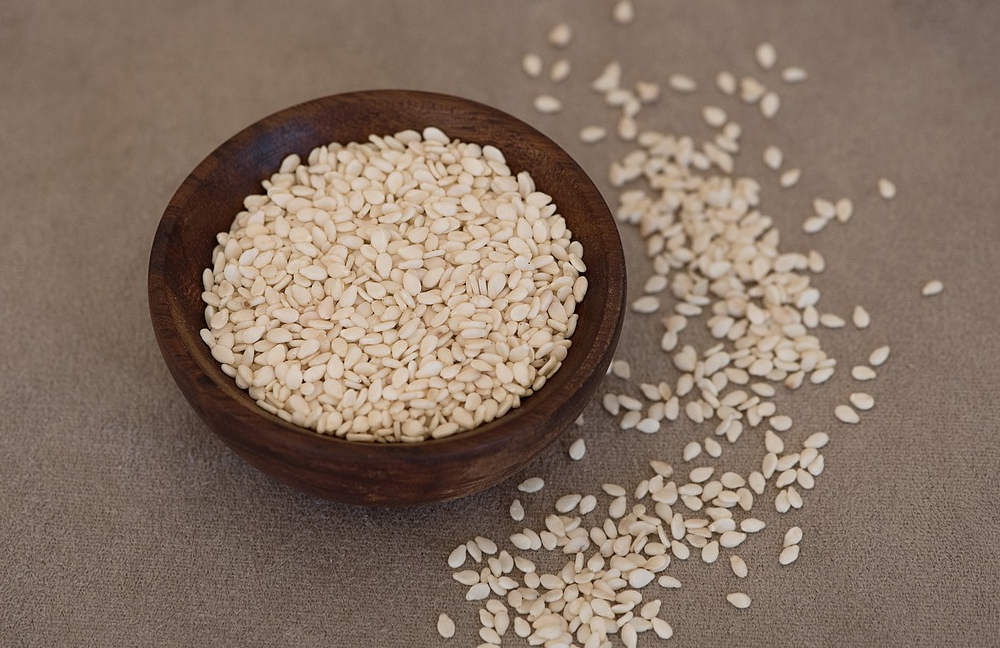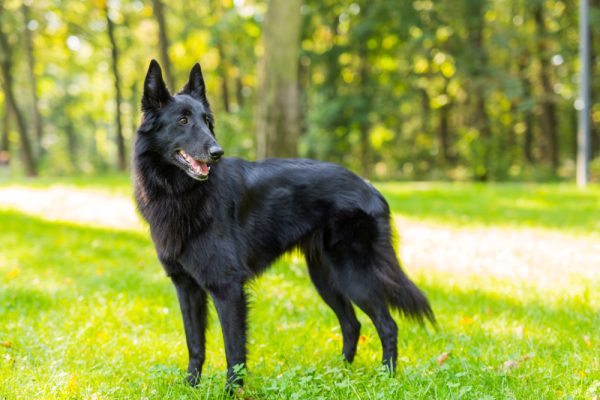In this article
View 3 More +If your dog has ever eyed your morning bagel, you might have wondered just how safe some of the ingredients are for them to eat. A little bread is ok from time to time, but can dogs have sesame seeds? Small amounts of sesame seeds are generally considered safe for dogs to eat, although they’re not really necessary for a complete and balanced diet.
If you’re interested in what sesame seeds may provide your canine, you’re on the right page! Let’s talk about that in further detail below, plus we’ll mention the possible risks of sesame seeds.

Why Can Dogs Eat Sesame Seeds?
Well, in truth, we don’t actually know. While they don’t appear to be toxic, there is little to no research to support that sesame seeds provide nutritional benefits for dogs, in any way. In other species, a scattering of sesame seeds may be touted to contain several important nutrients that contribute to a healthy diet. However, your dog gets everything they need in their kibble.
That said, there is no evidence to suggest any toxicity concerns for sesame seeds to dogs, either, as they are not listed on the ASPCA website.1 Therefore, sesame seeds may be seen as a rare yet crunchy way to add some variety.
With that said, sesame seeds are high in fiber, protein, antioxidants, and B vitamins. In other species, they may help with inflammation and cholesterol and contribute to bone health. But again, your dog isn’t likely to experience many of these benefits since they should only eat small amounts on rare occasions.

Risks of Sesame Seeds for Dogs
Sesame seeds may be okay in small servings but aren’t really necessary in a complete diet. In fact, they can even pose some health risks. These are relatively minor, but in excess, sesame seeds can cause your dog some health issues.
- Digestive upset: New foods can give your dog an upset stomach or vomiting, so avoid feeding sesame seeds to dogs with stomach problems, and introduce new items cautiously.
- Allergies: Some dogs can develop an allergy to sesame seeds or other types of seeds/nuts.

Ideas for Including Sesame Seeds in a Healthy Diet
Adding sesame seeds to your dog’s diet can add a little bit of atypical flavor and crunch, but it’s strictly an additive and should never be a main part of a healthy dog diet. Introduced carefully, you can add some variety and a little punch of nutrition to your dog’s diet.
Is Sesame Oil Safe for Dogs
There is really no reason why you should offer your dog sesame oil, so we recommend not offering it. If you think it would work as a supplement of omega fatty acids, you’re better off speaking to your vet about other more potent options.
If you need to speak with a vet but can't get to one, head over to PangoVet. It's our online service where you can talk to a vet online and get the advice you need for your pet — all at an affordable price!

Conclusion
Sesame seeds are fine for your dog to eat in small amounts but should be considered an extra, and they aren’t necessary in your dog’s diet. If you want to include them, speak to your vet first, and always go slow. If they don’t experience any adverse effects, you can add a little to their meal on occasion.
However, don’t forget this, and any new foods, should all be approved by your vet first.
Featured Image Credit: AhaaRuchi, Pixabay



















